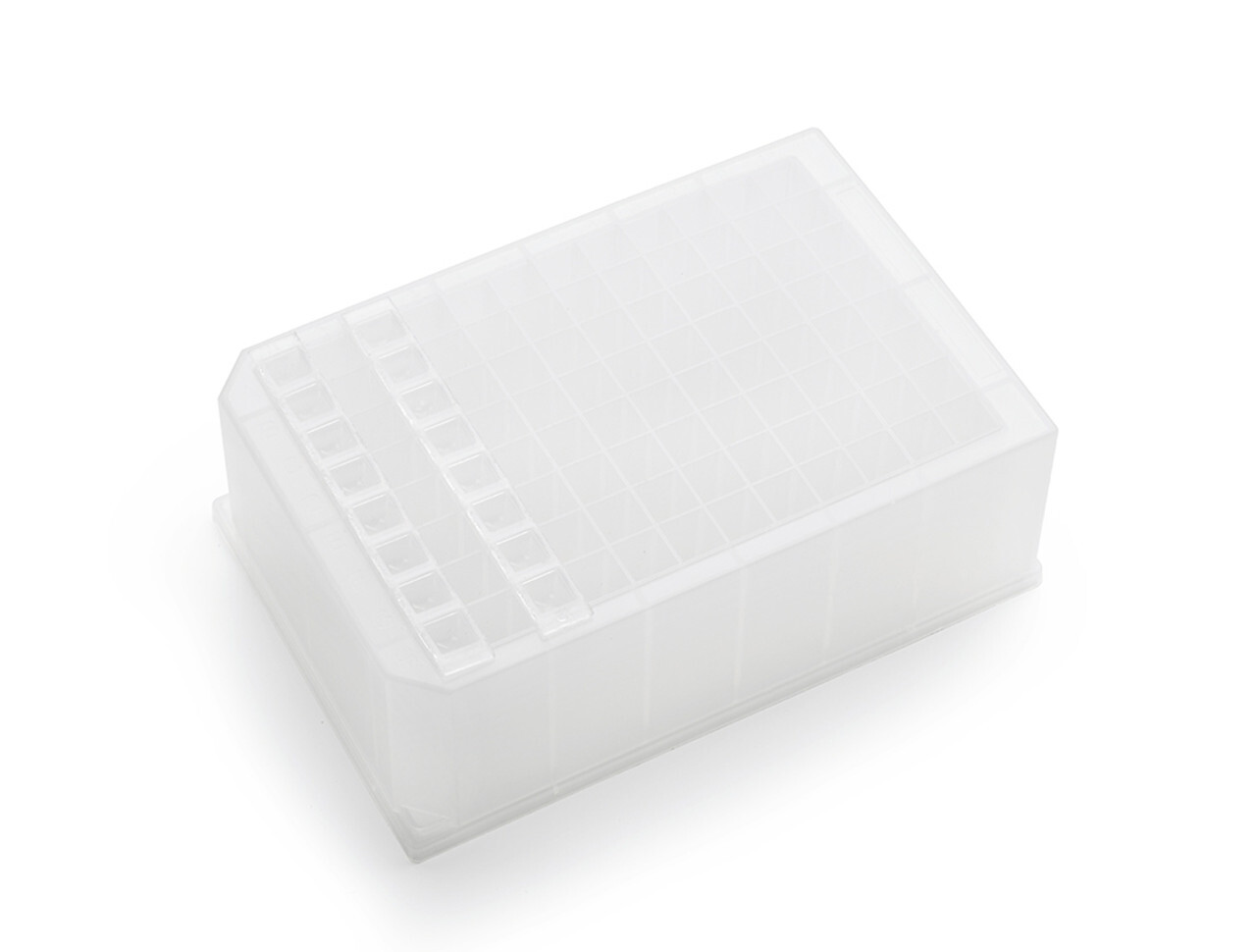Posted by Chrom Tech on 28th Oct 2025
Can you recommend the best brands for 96 well plates?
By Chrom Tech – Your Chromatography Consumables Partner Since 1983
Overview
Selecting the right 96 well plates is critical for accuracy, consistency, and efficiency in any laboratory workflow. Whether you're operating a high-throughput lab or integrating with automated liquid handling systems, plate design and brand quality directly influence sample integrity and reproducibility. At Chrom Tech, we supply industry-trusted 96 well plates engineered for performance, automation compatibility, and long-term durability.

What Are 96 Well Plates?
96 well plates are multi-well microplates commonly used for assays, sample storage, and high-throughput screening. Each plate consists of a grid of 96 uniform wells designed for small-volume liquid handling in analytical and biological applications. They are available in rimmed or non-rimmed configurations to suit different sealing and automation requirements.
Rimmed vs. Non-Rimmed Designs
Rimmed plates include a raised edge that helps secure sealing films and prevent cross-contamination—ideal for storage and transport. Non-rimmed plates provide a flat surface preferred for automated systems requiring smooth robotic handling. Choosing the right plate type ensures optimal sealing performance and instrument compatibility.
Top Brands for 96 Well Plates
Quality, precision, and reliability vary across manufacturers. Below are the leading brands trusted by research and analytical laboratories worldwide:
Chrom Tech: Precision and Versatility
Chrom Tech offers rimmed and non-rimmed polypropylene plates that deliver exceptional clarity, chemical resistance, and durability. Designed for high-throughput applications, Chrom Tech plates integrate seamlessly with automated platforms like the Hamilton Star.
- Rimmed & Non-Rimmed Options: Choose based on sealing and workflow requirements.
- Automation Compatibility: Meets SBS/ANSI plate standards for liquid handling robots.
- Sealing Flexibility: Compatible with PTFE Sealing Film and EZ Pierce Sealing Film.
Greiner Bio-One: Engineered for Automation
Greiner plates are optimized for automated workflows, providing consistent well geometry and excellent optical clarity for precise readings. Their MasterBlock® series is widely adopted in global high-throughput labs.
- High Throughput Ready: Ideal for screening and robotic handling.
- Rimmed Construction: Ensures secure sealing and sample integrity.
- Superior Flatness: Improves reproducibility in optical detection applications.
Sealing Options for 96 Well Plates
Proper sealing is vital for preventing evaporation and contamination. Chrom Tech offers two primary sealing film options tailored to different assay needs:
PTFE Sealing Film
Durable and chemically resistant, PTFE sealing films provide long-term protection for demanding chemical and biological assays.
EZ Pierce Sealing Film
EZ Pierce films allow easy pipette or probe access without removing the seal, ideal for repeated sampling and automated systems.
Key Factors When Selecting Plates
- Design Type: Choose rimmed for better sealing or non-rimmed for automation.
- Material: Use polypropylene for chemical resistance and low binding properties.
- Automation Compatibility: Ensure SBS-standard dimensions for robotic systems.
- Sealing Requirements: Match sealing film type to assay workflow.
- Budget: Balance cost with long-term performance and durability.
Conclusion
Selecting the best 96 well plates depends on your laboratory’s workflow, sealing requirements, and automation setup. Chrom Tech and Greiner both deliver precision-engineered plates built for high-throughput performance and compatibility. Pair them with PTFE or EZ Pierce Sealing Films to safeguard sample integrity and achieve reproducible, high-quality results in every run.
Frequently Asked Questions
What are 96 well plates used for?
They are used for assays, high-throughput screening, and sample storage, allowing simultaneous processing of multiple samples in uniform volumes.
What is the difference between rimmed and non-rimmed plates?
Rimmed plates support sealing films and reduce contamination risk. Non-rimmed plates offer a flat surface ideal for automated systems and repeated pipetting access.
Which brands offer the best 96 well plates?
Chrom Tech and Greiner are leading brands offering automation-compatible, durable 96 well plates with multiple sealing and design options.
How should 96 well plates be sealed?
Use PTFE Sealing Film for chemical resistance or EZ Pierce Film for convenient sample access.
Are 96 well plates reusable?
Most plates are designed for single use to prevent cross-contamination, though some polypropylene models can be reused after thorough cleaning for non-critical applications.
Do 96 well plates come sterile?
Yes. Sterile options are ideal for cell culture and sensitive assays, while non-sterile plates are suitable for general analytical work.

